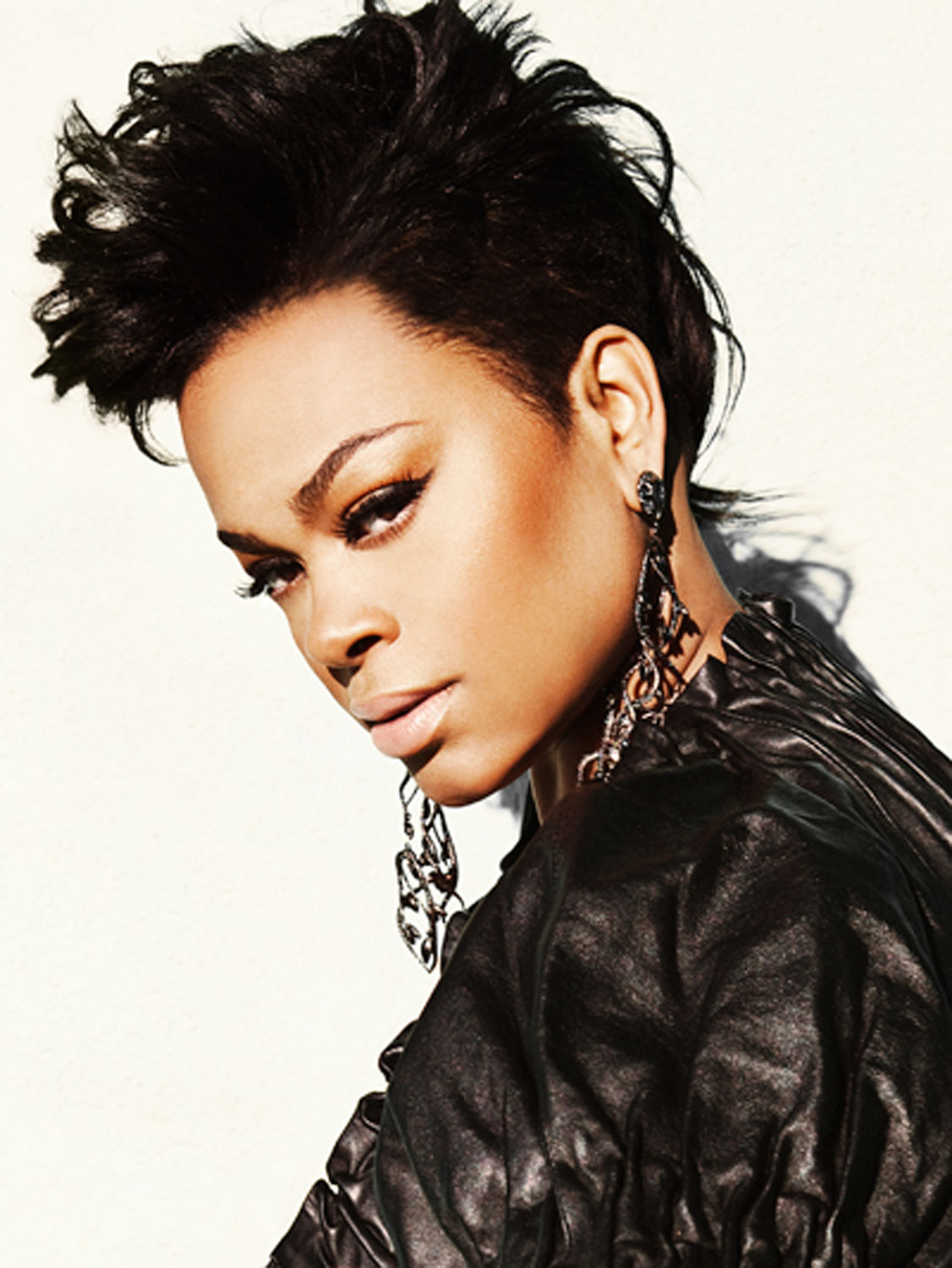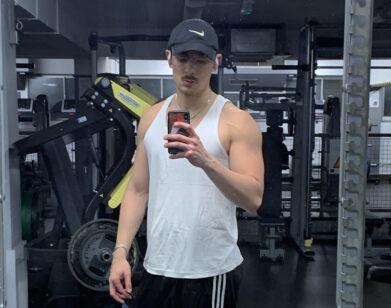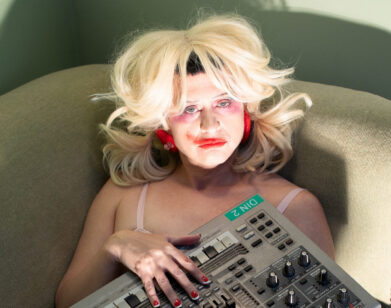Jill Scott’s Fourth Act

JILL SCOTT. PHOTO COURTESY OF GOMILLION AND LEUPOLD STUDIOS
Jill Scott has played many roles—exceptionally sincere poet, influential vocalist, and committed actress—but she’s recently added a new achievement to her long list, perhaps her most fulfilling: ecstatic mother. The Philly native first hit the scene in 1999, after she was discovered by fellow Philadelphian Ahmir “?uestlove” Thompson of The Roots. The meeting spawned the singer’s first collaboration with the group-the Grammy Award-winning track “You Got Me,” which Scott co-wrote. Scott became a frequent (and favorable) guest in the Roots’ live set, soon embarking on a solo career of her own.
Since then, the 39-year-old Scott has released three critically acclaimed albums (and a fourth, The Light Of the Sun, which is in stores today), appeared in an array of acting roles, and even performed poetry at The White House alongside Common and Aimee Mann. We spoke to the accomplished artist about her dealings with poetry, her new role as a mother, and her recent move to a new label.
ALEX CHAPMAN: Hi, Jill. Thanks so much for speaking with me today.
JILL SCOTT: My pleasure.
CHAPMAN: What was your first contact with poetry?
SCOTT: I think the first time I really heard poetry was in the schoolyard. Just the little limericks that kids say when they’re jumping rope and playing games. I think that’s the first time I heard rhyming words—I don’t know if I’d call that the definitive poetry, but that’s when I heard rhyming words said and not necessarily sung. And then later on, I was in the eighth grade and our teacher, Ms. Danish, gave us a list of people that we could to do a biography on, and Nikki Giovanni was on the list. I didn’t know she was, but I thought she had a cool name. Nikki Giovanni! I got a book of hers from the library, and there was this woman who could paint me on paper with words—my whole little experience. I thought it was wonderful.
CHAPMAN: She’s still a professor now, right?
SCOTT: Yes.
CHAPMAN: Did you ever get to meet her?
SCOTT: I met her one time—it was very brief. There were a lot of people, and I waited in line for a long time. I just got to say hi and that was it.
CHAPMAN: Still—pretty great to meet someone who helped you discover your passion.
SCOTT: She was the reason I started to write. Up until then, I’d read great poets, but this was something different—there was something very simple and genuine about the writing. I could see myself sitting between my grandmother’s legs, getting my hair braided. It was like this reflection on paper.
CHAPMAN: I’ve found myself reflecting on personal pieces I’ve written in the past with embarrassment—a bit of self-recognition and a lot of self-loathing. As someone who is considered and considers herself a “method artist,” what do you feel when you read your older stuff?
SCOTT: Well, sometimes I read myself from the past and I say “Oh, you so stupid.” You know? [laughs] “You’re so stupid” just then. Or “You’re so lost”—I think it was Martin Luther King who said self-examination is the sign of maturity. So I just check myself. “You were right on there.” [Sometimes] I’ll give myself a little pat on the back. But when I was just stupid and dumb and backwards, which is something people have a tendency to be at times, I look back at that and say, “Damn, girl. At least you got your shit together now.” [laughs]
CHAPMAN: Do you feel like you’re completely defined now that you do have yourself together? Your first album was called Who’s Jill Scott? This one doesn’t seem to be asking that type of question.
SCOTT: I’m not landed yet. I don’t know if I ever really want to land—I just want to keep growing. I’ll probably change some more—I hope so. I do really, really like the core of me. I will say that. But I think with this album, something major happened—I had a baby. First of all, I was always told I could never have children, and then for me to actually get pregnant and have a child—they’re little people, they’re looking at us. Even when they’re in the crib and they can’t say anything and they’re just peeing and pooping and eating and throwing up. There’s something really magical about having a child—it’s like permission to begin again, start over, reevaluate some things, check yourself. Recognize yourself. And that’s kind of what happened with me—I realized, in a few places, I was going down the wrong path.
CHAPMAN: You’ve always been topical. What’s on your mind now?
SCOTT: I think what irks me is that I feel like women are really being compartmentalized physically, and it’s been done so much that now we’re doing it to ourselves. I don’t like it. I don’t necessarily think of myself as a feminist, but I’m a whole person. I’m not just breasts or ass or thighs—I’m a whole being! And it just seems like women aren’t necessarily striving to be the whole of themselves. It’s frustrating me—that booty is gonna sag at some point. And if you allow enough people to come inside your physical space, they leave traces. There just has to be more to us—at this point, the divorce rate is super high, single parenting is super high, and I’m just trying to pay attention to some things. What do I value? What’s important to me as a human being? I don’t want to lose the all of me trying to be some piece of me.
CHAPMAN: How’d you feel about the negative commentary put towards Common after his poetry reading at the White House?
SCOTT: I don’t necessarily like how Republicans are playing the game when it comes to finding things not to like about our president. I didn’t necessarily appreciate that whole thing with Common. Common is one of the nicest people I’ve ever met, and to describe him as a vile rapper because he has an opinion… just says a lot about the state of America. You are allowed to have an opinion in the United States—he’s never harmed anybody, he just has an opinion about a president that wasn’t good for our country.
CHAPMAN: I mean, as Jon Stewart so aptly stated, “This is the guy from the Gap commercials.” Common’s one of the most peaceful rappers ever.
SCOTT: Ever! He doesn’t make songs about shooting somebody or selling drugs to the community. He’s the antithesis of those things. So how does he become a vile rapper because he criticizes a president that wasn’t good for us? And it was very clear that president wasn’t good for the people.
CHAPMAN: Agreed. Let’s talk about your new album, which you released on your own after having a battle with your former label. How does it feel to be releasing your music yourself?
SCOTT: I feel like more of myself than I’ve ever been, having this freedom, choosing a company that is supportive and understanding, that will distribute my music—it feels very exciting to me. I worked on the project for about a year and a half, and I worked with some incredibly musicians. We had so much fun! I call it “blacking out.”
CHAPMAN: Blacking out?
SCOTT: I blacked out for most of the record. Basically, it’s like you’re standing in front of the microphone and you wake up five hours later and you’re sweating, clapping, hugging musicians, and you don’t really know why until you hit playback. That’s the experience that I had making this music. It’s honest and it’s about humanity—being weak at times and strong, being resolute and then confused, being lost. And standing on your two feet again—there’s a poem called “Womanifesto” that I performed at the White House, but it’s also on the record, and I’m just hoping that people…men will write that Manifesto and women will write their Womanifesto. What’s good about you? What’s powerful about you? Write it down and put it on your mirror and read it every damn day. That’s a part of this project. But it’s also sexy—there’s some songs that strippers may enjoy dancing to, that they may enjoy beguiling and coercing to. I’m stronger in my femininity then I have been ever.
CHAPMAN: Do you think being a mom has something to do with that? A lot women say that becoming a mom makes them feel sexier.
SCOTT: It’s true. Being a mom, it feels like I did something so powerful and amazing. It’s such a gigantic blessing, and a confirmation that the Creator exists. And all of that has made me feel sexier and stronger. I call it “lava in my spine.”
JILL SCOTT’S FOURTH ALBUM, THE LIGHT OF THE SUN, IS OUT TODAY. FOR MORE ON JILL, VISIT HER WEBSITE.






